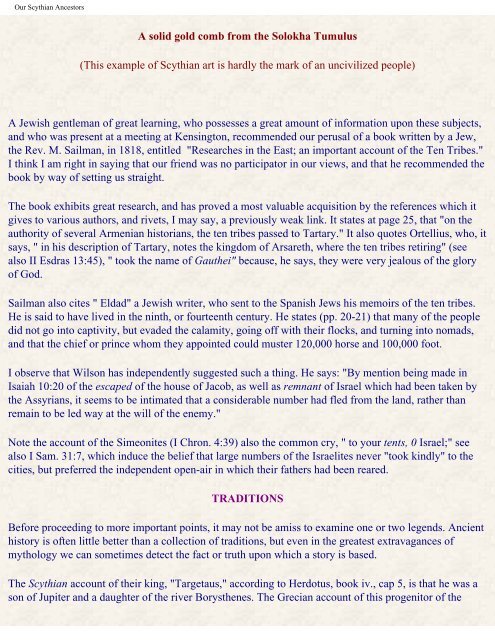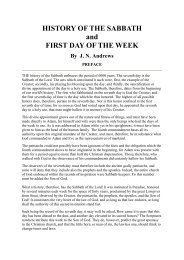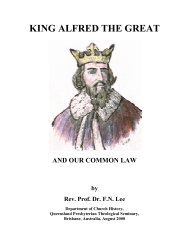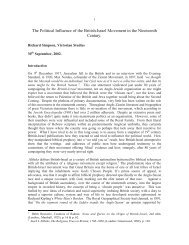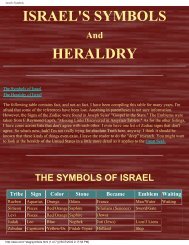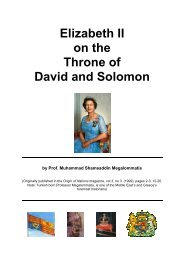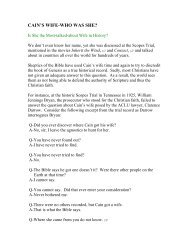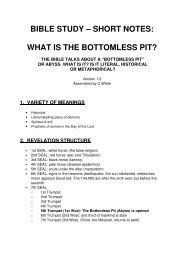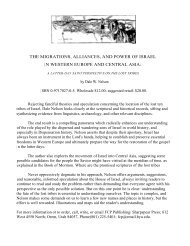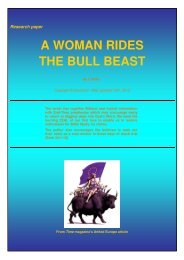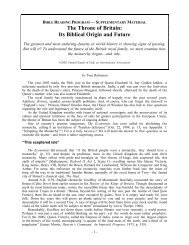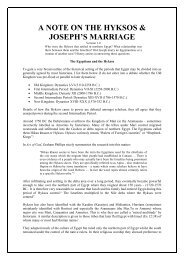Our Scythian Ancestors - Origin of Nations
Our Scythian Ancestors - Origin of Nations
Our Scythian Ancestors - Origin of Nations
Create successful ePaper yourself
Turn your PDF publications into a flip-book with our unique Google optimized e-Paper software.
<strong>Our</strong> <strong>Scythian</strong> <strong>Ancestors</strong>A solid gold comb from the Solokha Tumulus(This example <strong>of</strong> <strong>Scythian</strong> art is hardly the mark <strong>of</strong> an uncivilized people)A Jewish gentleman <strong>of</strong> great learning, who possesses a great amount <strong>of</strong> information upon these subjects,and who was present at a meeting at Kensington, recommended our perusal <strong>of</strong> a book written by a Jew,the Rev. M. Sailman, in 1818, entitled "Researches in the East; an important account <strong>of</strong> the Ten Tribes."I think I am right in saying that our friend was no participator in our views, and that he recommended thebook by way <strong>of</strong> setting us straight.The book exhibits great research, and has proved a most valuable acquisition by the references which itgives to various authors, and rivets, I may say, a previously weak link. It states at page 25, that "on theauthority <strong>of</strong> several Armenian historians, the ten tribes passed to Tartary." It also quotes Ortellius, who, itsays, " in his description <strong>of</strong> Tartary, notes the kingdom <strong>of</strong> Arsareth, where the ten tribes retiring" (seealso II Esdras 13:45), " took the name <strong>of</strong> Gauthei" because, he says, they were very jealous <strong>of</strong> the glory<strong>of</strong> God.Sailman also cites " Eldad" a Jewish writer, who sent to the Spanish Jews his memoirs <strong>of</strong> the ten tribes.He is said to have lived in the ninth, or fourteenth century. He states (pp. 20-21) that many <strong>of</strong> the peopledid not go into captivity, but evaded the calamity, going <strong>of</strong>f with their flocks, and turning into nomads,and that the chief or prince whom they appointed could muster 120,000 horse and 100,000 foot.I observe that Wilson has independently suggested such a thing. He says: "By mention being made inIsaiah 10:20 <strong>of</strong> the escaped <strong>of</strong> the house <strong>of</strong> Jacob, as well as remnant <strong>of</strong> Israel which had been taken bythe Assyrians, it seems to be intimated that a considerable number had fled from the land, rather thanremain to be led way at the will <strong>of</strong> the enemy."Note the account <strong>of</strong> the Simeonites (I Chron. 4:39) also the common cry, " to your tents, 0 Israel;" seealso I Sam. 31:7, which induce the belief that large numbers <strong>of</strong> the Israelites never "took kindly" to thecities, but preferred the independent open-air in which their fathers had been reared.TRADITIONSBefore proceeding to more important points, it may not be amiss to examine one or two legends. Ancienthistory is <strong>of</strong>ten little better than a collection <strong>of</strong> traditions, but even in the greatest extravagances <strong>of</strong>mythology we can sometimes detect the fact or truth upon which a story is based.The <strong>Scythian</strong> account <strong>of</strong> their king, "Targetaus," according to Herdotus, book iv., cap 5, is that he was ason <strong>of</strong> Jupiter and a daughter <strong>of</strong> the river Borysthenes. The Grecian account <strong>of</strong> this progenitor <strong>of</strong> the


